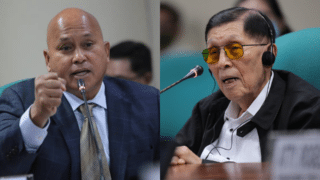With the filing of candidacies by prospective candidates for elected office in the May 2022 polls this October, the race is on, and the elections will be conducted during a pandemic, posing considerable challenges to the Commission on Elections (Comelec). While it is crucial to ensure that the elections are conducted safely in light of the persisting COVID-19 threat, issues that hound every election such as electoral fraud, integrity of the process, violations of election laws, etc., should be addressed as well.
One particular issue that needs more vigorous discussion is the subject of campaign finance. It is an accepted fact that it takes a candidate and his/her party a fortune to campaign and get elected into office.
Section 13 of Republic Act No. 7166 sets the amounts a candidate may spend for an election campaign. Section 14 of the said law also mandates that every candidate and the treasurer of political parties file a statement of contributions and expenditures (SOCE) within 30 days after election. The law provides penalties for failure to submit within the prescribed period.
Still, one doesn’t need to be a genius to know that most campaigns have no way of spending within that limit. Candidates and political parties are likely not going to be completely forthcoming about the contributions they received and the expenses they made during the campaign. SOCEs are self-reported, and there is a seeming lack of detailed scrutiny of such filings.
To be fair, the Comelec through its Campaign Finance Office has been making efforts to address the problem. However, it is hampered by a lack of resources to effectively go after violators. The SOCE is a public document, yet having access to it is not enough, especially if the entries are spurious. Resources will be needed to untangle any deception.
Why is this issue so important? With the staggering amount of money involved in getting elected into public office, the danger of a compromised candidate is always there. It would be naive to think that all campaign contributions come with no strings attached. Of course, some supporters truly believe in their candidate and lend their genuine support. But for others, backing a candidate is considered an investment, with the expectation of a commensurate return. Powerful elements may even attempt to “buy” a candidate who will advance their interests and/or agenda.
Therefore, for the public to better understand where a candidate is likely to stand on an issue and what interests he/she represents, it is vital that we see who is footing the bill for a candidate to get elected into public office.
Transparency is key, and we don’t need to wait for electoral reforms to cover gaps that are being exploited, and for more resources to be provided to agencies to get the job done and enforce the provisions of the law more effectively. Those efforts should continue and be supported, but we simply need the candidates and political parties to be honest with us, the voting public.
Here’s a challenge for those seeking public office: Don’t hide behind loopholes in the laws. Be open about your campaign finances and set the example. Don’t even wait for the 30-day filing period after the election. Show us who is footing the bill for your campaign, and make the information public as early as possible. If the donors, the party, and the candidate have nothing to hide, then take this opportunity to make a positive difference in our political landscape.
* * *
Moira G. Gallaga served three Philippine presidents as Presidential Protocol Officer, diplomatically posted to the Philippine Consulate General in Los Angeles and the Philippine Embassy in Washington, DC.


